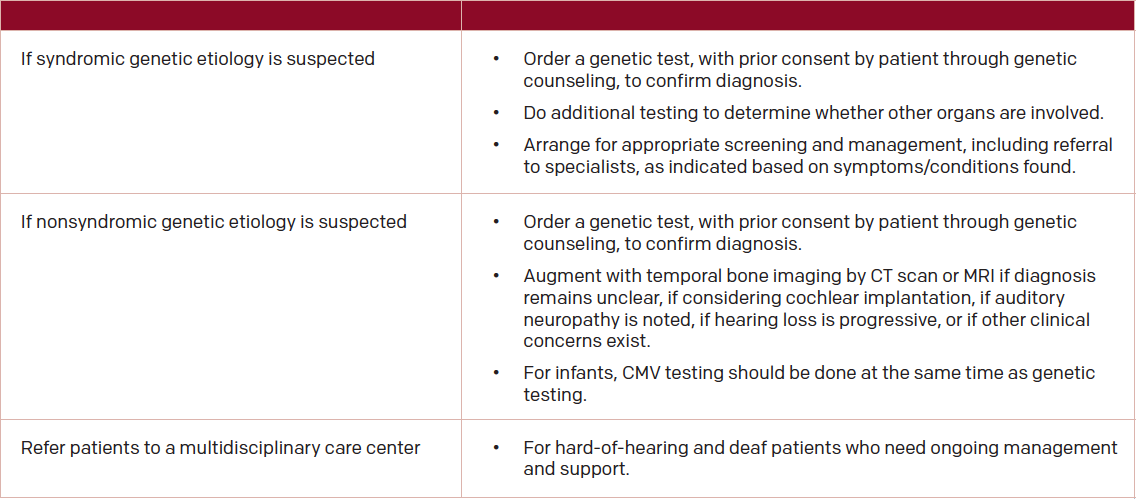Another important goal of genetic testing is to provide genetic counseling for parents who may want information on the chance of having another child with hearing loss, said Dr. Friedman.
Explore This Issue
August 2017Genetic testing also may be used as an adjunct to hearing screening at birth, according to Anil K. Lalwani, MD, vice chair for research and director of the division of otology, neurotology, and skull base surgery at Columbia University College of Physicians and Surgeons in New York City. Although he and his colleagues are not yet using genetic testing in this way, he sees the potential the process has for ensuring that appropriate intervention is not delayed in children who have a true hearing deficit. “Imagine the scenario where the infant who fails hearing screening immediately undergoes genetic testing before discharge from a well-baby nursery,” he said. “If the test is positive, one would know that the likelihood of hearing loss is high, so the next appointment could be about both establishing the severity of hearing loss [and arranging] therapeutic intervention.”
Using Genetic Testing in the Clinic
In recognition of the role genetic testing may play in evaluation of hearing loss, and the advances in technology the field is experiencing, the American College of Medical Genetics and Genomics (ACMG) published practice guidelines in 2014 for the clinical evaluation and etiologic diagnosis of hearing loss (Genet Med. 2014;16:347-355.) Table 2 provides recommendations on when genetic testing may be useful (See “Table 2: ACMG Suggested Use of Genetic Testing for Clinical Evaluation of Hearing Loss”).

(click for larger image) Table 2: ACMG Suggested Use of Genetic Testing for Clinical Evaluation of Hearing Loss
Source: Genet Med. 2014;16:347:55.
To date, the American Academy of Otolaryngology–Head and Neck Surgery (AAO-HNS) has offered no official guidance to otolaryngologists on the use of this guideline. Input from some of the sources in this article suggests that individual otolaryngologists must use their best judgment to determine whether they should order a genetic test or refer the patient to a geneticist. Dr. Moody suggests that clinicians consider genetic testing frequently and provide it as a typical component to the algorithm to diagnose hearing loss, with emphasis on the idea that clinicians need to develop relationships with local geneticists for patients in whom more extensive genetic counseling is needed.
Although Dr. Lalwani routinely ordered and handled genetic testing in his earlier practice, he said that he now refers patients to a geneticist, given the complexity of genetic testing and the analysis of results. “Genetic testing is so complex that to do justice to it, specifically as we move into sequencing larger segments of our genome and whole genome sequencing, it may be best to refer to a geneticist so that the patient can benefit from their comprehensive consultation,” he said. All agreed that genetic counseling is a critical component to any genetic testing.